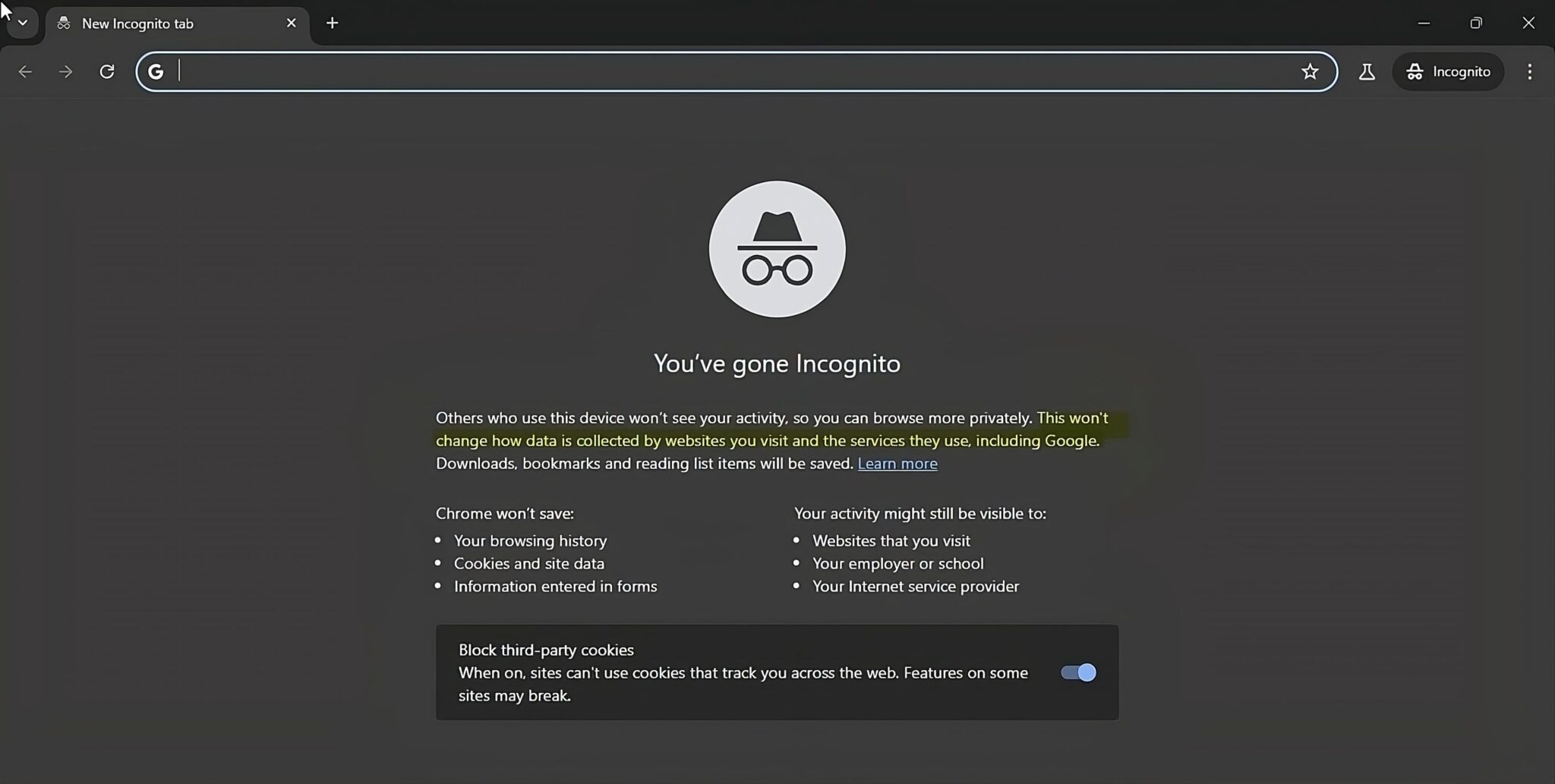
Many people have thought to use Chrome's Incognito mode as a savvy way to shop for plane tickets or other big-ticket items. Unfortunately, while Incognito mode has been marketed as a way to browse privately, away from the watchful eye of Google and other sites, that's not how it works.
Following a lawsuit settlement in late December (still waiting to be approved by a judge in February) that realized Incognito wasn't as private as it seemed, Google is updating the disclaimer you'll see in a new Incognito mode window.
Spotted by MSPowerUser (via Gizmodo) in Canary, a tester version of Chrome used primarily by developers, the new disclaimer makes it clear that the websites you visit, including Google, and the services these sites use will still collect your data as normal. This is how Incognito mode has always worked, but now, users will clearly know that their browsing habits aren't private from sites and services.
Incognito mode is only useful for hiding history
Right now, when you open a new window in Incognito mode, you'll see a quick blurb under the "You've gone Incognito" heading. It reads: "Now you can browse privately, and other people who use this device won't see your activity. However, downloads, bookmarks and reading list items will be saved."
In the Canary version of Chrome, there's a new sentence added to this disclaimer. Sandwiched between the two existing sentences, you'll now see this sentence: "This won't change how data is collected by websites you visit and the services they use, including Google."

This one little sentence lets users know that anything they're looking at on websites in Incognito, from plane tickets to a new jacket or brand of pet food, will still produce data that's collected by the sites and services you're using. Your browsing history won't be saved, but your data will be.
Right now, this disclaimer update is only in the Canary version of Chrome, but all users will see the new text soon, probably in the next few updates of Chrome. This clarification in how Incognito tracks and uses your browsing data is all thanks to the $5 billion class-action lawsuit brought against Google in 2020.
In an recently emailed statement, Google spokesperson José Castaneda wrote, " We're pleased to resolve this case, which we've long disputed, and will provide even more information to users about Incognito Mode," which "will continue to give people the choice to browse the internet without their activity being saved to their browser or device."
If you don't want something saved in your browser history, Incognito mode will work just fine. But if you're trying to obscure your activity from websites, mask your physical location, and prevent your data from being tracked, you'll likely want to invest in one of the best VPN services rather than Incognito mode.







